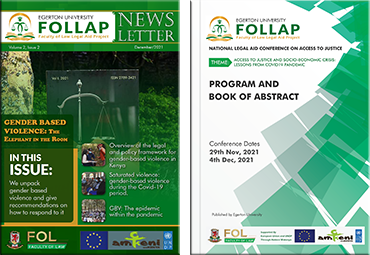Ownership of matrimonial property vests in the spouses according to the contribution of either spouse towards the acquisition and shall be divided between the spouses if they divorce or their marriage is otherwise dissolved. This was a landmark ruling in the case of Echaria v Echariah that saw the court take a direction off course the jurisprudence in the Kivuitu v Kivuitu case. Section 2 of the matrimonial property act defines contribution to be either monetary and non-monetary. This has made it better since previously contribution was considered the direct monetary contribution that the spouse makes towards the marriage. The courts recognition of the fact that sometimes the wife’s contribution lay in indirect ways such as domestic chores and taking care of the children which in other circumstances would require a nanny employed for such.
The 2010 constitution recognized that parties in a marriage are equal at marriage, before marriage and at the dissolution of the marriage. It also establishes that all are equal before the law and require equal protection of the law. Despite the constitution being a comprisal document for all wakes in the society, it is unclear whether this refers to equal contribution of 50/50 at the division of matrimonial property or whether it shall be based upon the direct and indirect contributions during the marriage.
The matrimonial property act recognizes companionship, child care and farm work as non-monetary contribution which require recognition from the law. The Kenyan parliament is further mandated under article 68© to make sure that there is enactment of a legislation that governs the division of matrimonial property in a marriage. It hence establishes the matrimonial property act of 2007 that suggests the division of matrimonial property based on both monetary and non -monetary contribution in section 17 of the act.
However, it is noted as established in the Kivuitu v Kivuitu case where property has been jointly registered in the names of the spouses both spouses have a right to equal shares of the property under joint tenancy doctrine. The concept of division of matrimonial property brings about major considerations such as gender equality where the law aims to eradicate the patriarchal antecedents of associating women to be gold diggers of their husband’s property and also aims to culminate the fact that women can be successful too.
The concept of 50/50 division does not actually promote equality especially where one party contributes everything in the marriage. The courts should exercise substantive equality in such instances where the enormous input of women during child birth and care, cooking and other roles especially where the society is looming with patriarchal stereotypes. The division of matrimonial property should be based upon equality in marriage is not only based on rights but obligations too. Both parties should give the same effort in taking care of their children to the best of their ability.






